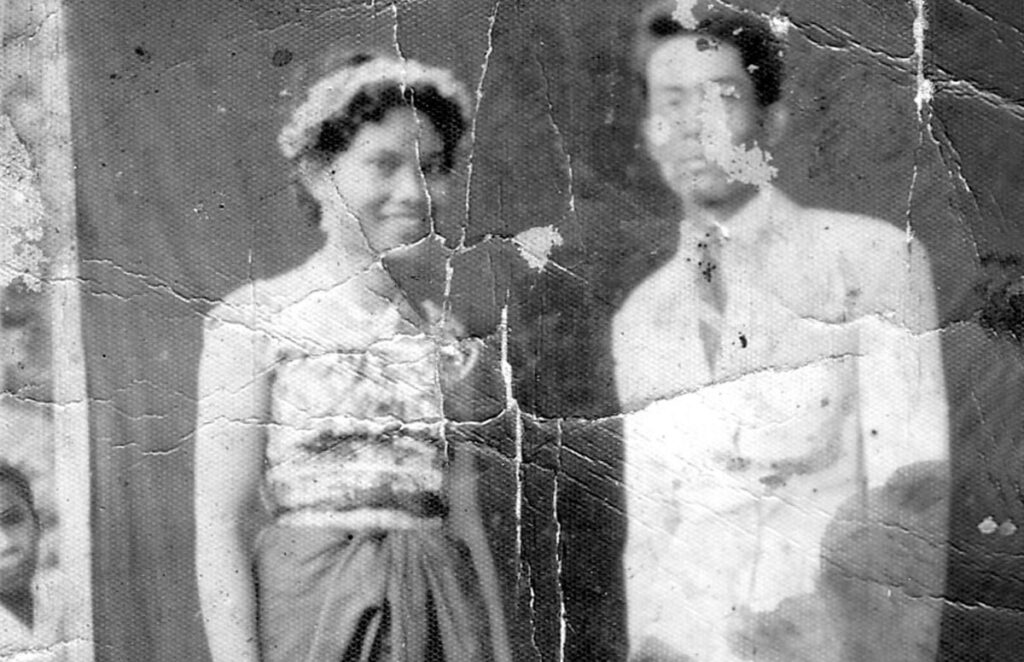I was born in Takeo Province, but during the Lon Nol regime, my family fled to Vietnam because it was not safe in my village. However, the Vietnamese authorities sent us back to Cambodia. We lived on the river in Phnom Penh along with many other refugees, and relied on the Red Cross to live. They gave us rice, dry fish, soap, sugar, milk, beds, mosquito nets, blankets, and mats. My mother is a very smart lady. Whenever the Red Cross team came, she spoke French with them.
My father joined the military police. In 1974, he sensed that things were becoming much worse in the country, so he pretended he was an epileptic so that he could quit. Eventually, my father’s boss gave him permission to resign.
On April 17, 1975 I heard the sounds of gunfire and bombs. The Khmer Rouge soldiers shouted “People must get out of the city within three days because the Angkar wants to organize the city. People, do not worry.” As we walked, my sister and I tied our hands together because we were afraid of becoming separated. After three days, there was more gunfire, so my family determined we could not move back to Phnom Penh. Eventually we went to Takeo Province.
Our family settled down in a house built from thatch and clay. We managed to survive on the rice we had brought from home along with crabs and snails we found in the rice fields. But when the cooperatives started, all food belonged to the Angkar and we could only eat our fill at harvest time. The Angker often called meetings to criticize people for the way they ate. They warned us that anyone caught looking for snails or vegetables would be tortured. But I was starving, so I stole vegetables many times.
My parents work in the kiln sector. I was in a children’s mobile unit that worked far from the village and was allowed to visit my parents only every three or four months. My job was carrying sheaves of rice to the field. The older children bullied me and I often fought with Keh, the unit chief, who punished me terribly, so I ran away to the jungle for six months and ate tree leaves to survive. At night, I would come into the village and steal wood so I could make a fire in the jungle and cook small fish. I was alone and miserable in the jungle, and when I could no longer bear it, I returned to the village. My parents sent me back to the mobile unit; if they had not, my family would have been in great danger. When I arrived, Keh punished me and warned me not to run away again.
One day, when I was taking a little rest, I saw a lemon in the tree over my head. A local child told me to pick that lemon to eat, so I did, and then wiped my mouth clean so that no one would notice. Keh then accused me of having stolen his chicken eggs to eat the night before. He ordered a cadre to put a karma [traditional checkered scarf] around my neck and pull it until I could no longer breathe. Luckily, the local children begged him to forgive me, and I was released.
Once when I was carrying pig dung, I fell and all if it spilled. Keh took out his whip to beat me, and accidentally hit me in the eyes. I could no longer see well after that.
The cadres often asked our family about our past, but I never told them the truth. I said my grandpa was a farmer, my father a pedicab driver, and my mother a water lily seller. The Angkar often asked, “Does anyone want to go back to their home village?” A family who had been our neighbors in Phnom Penh said yes, they were desperate to go home. That family disappeared; the villagers whispered that the Angkar had sent them to be killed.
Just before 1979, I heard bombs and gunfire coming from Takeo provincial town. The Khmer Rouge cadres whispered that another war might be starting. At 11 in the morning, I saw many armored cars along the road. Our family members began running away from the Khmer Rouge soldiers. Luckily, we met Vietnamese soldiers who let us go home.

